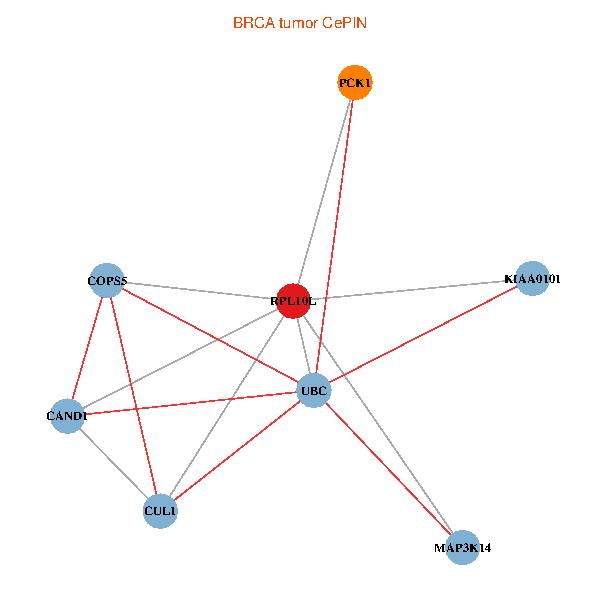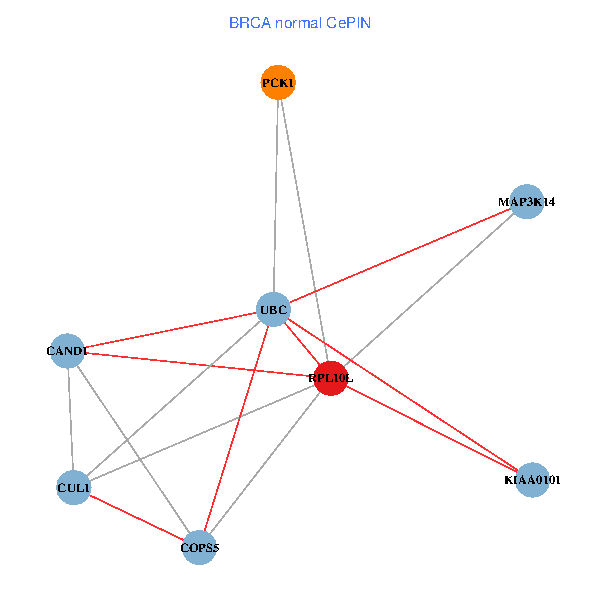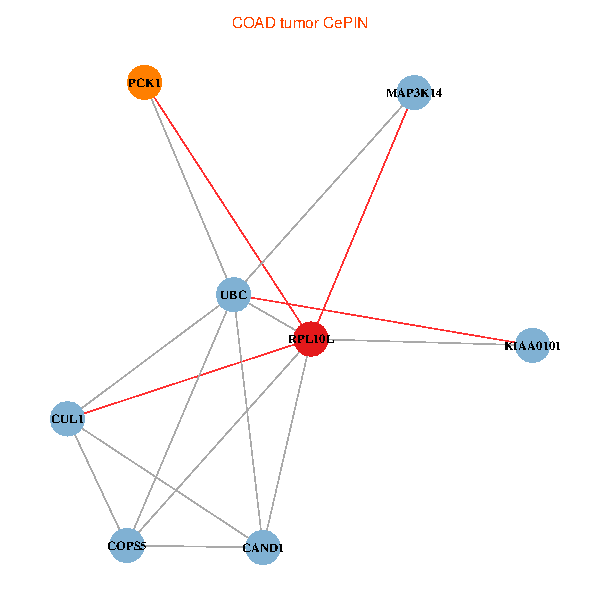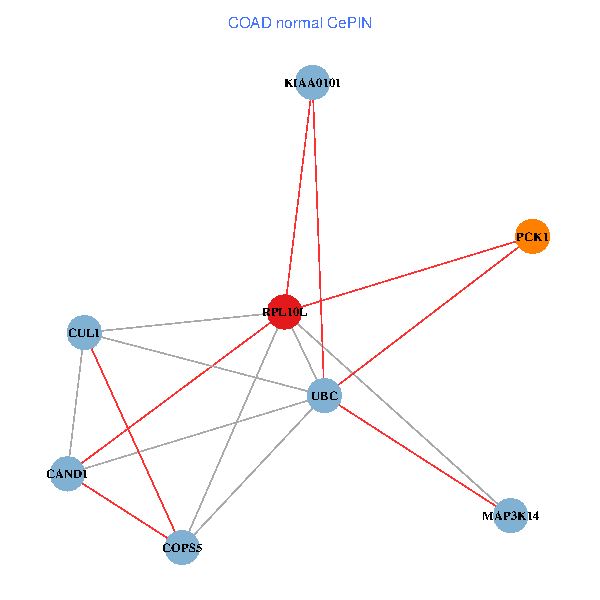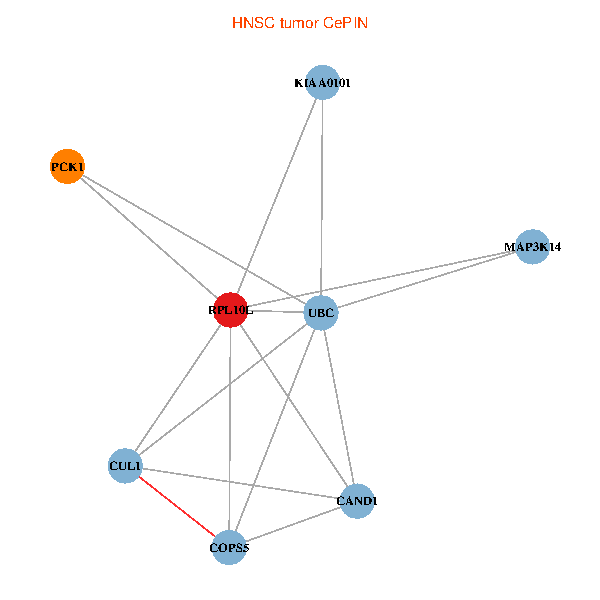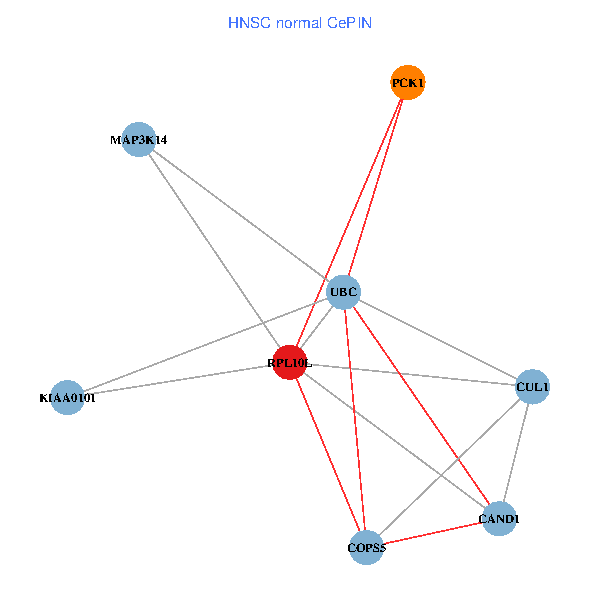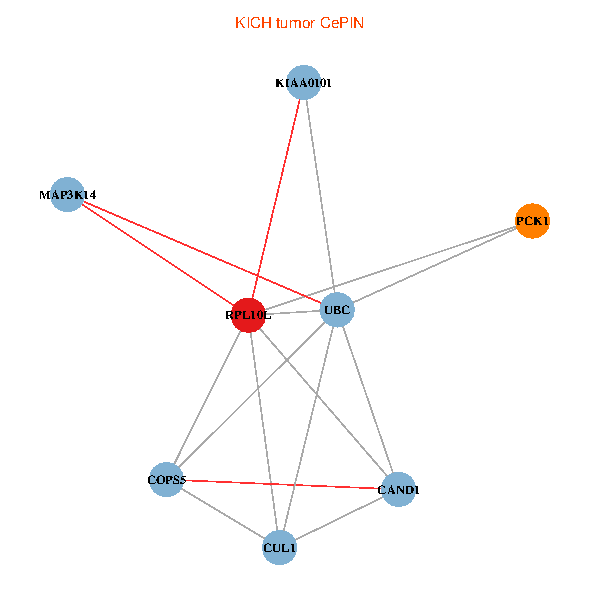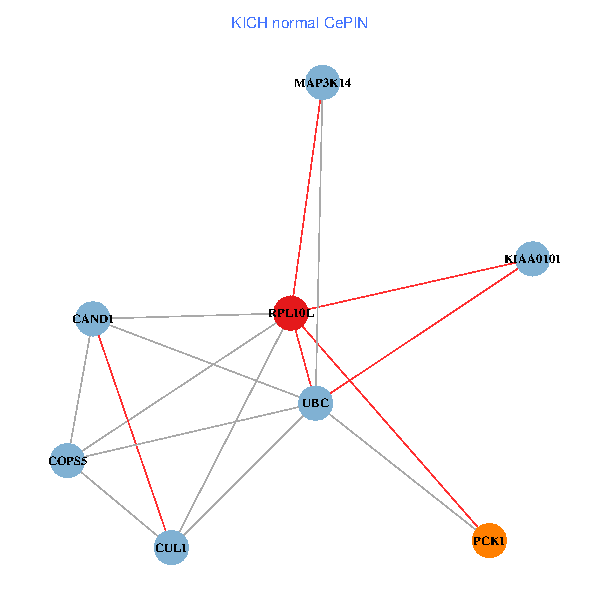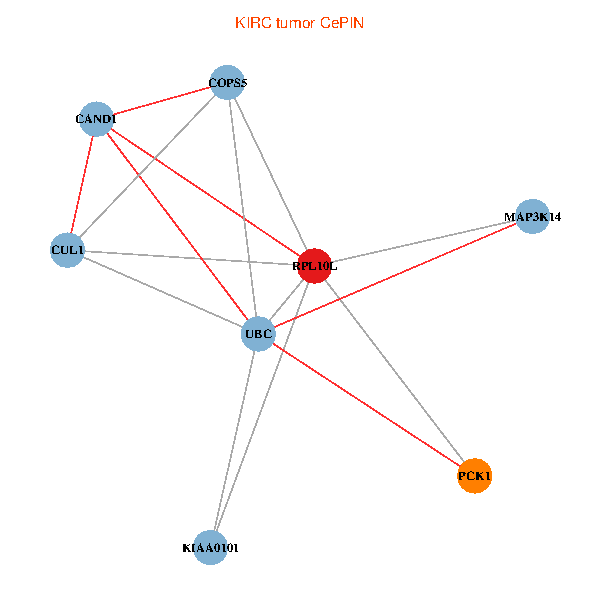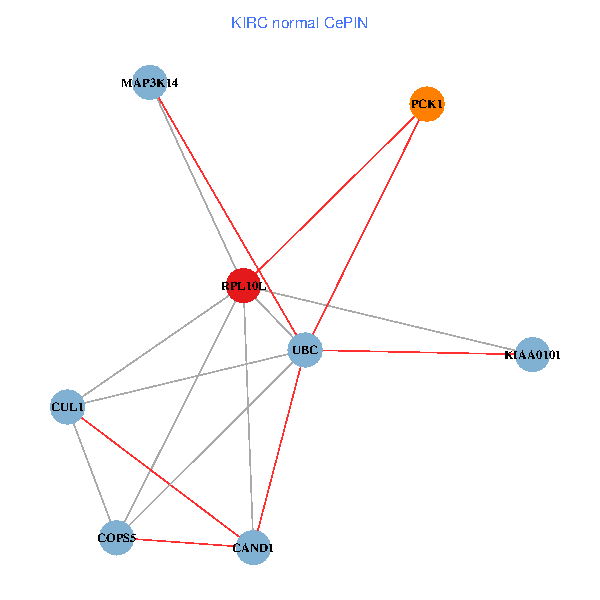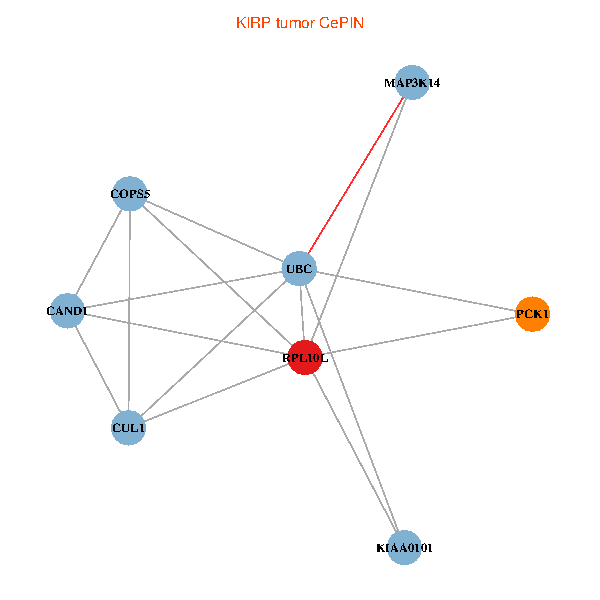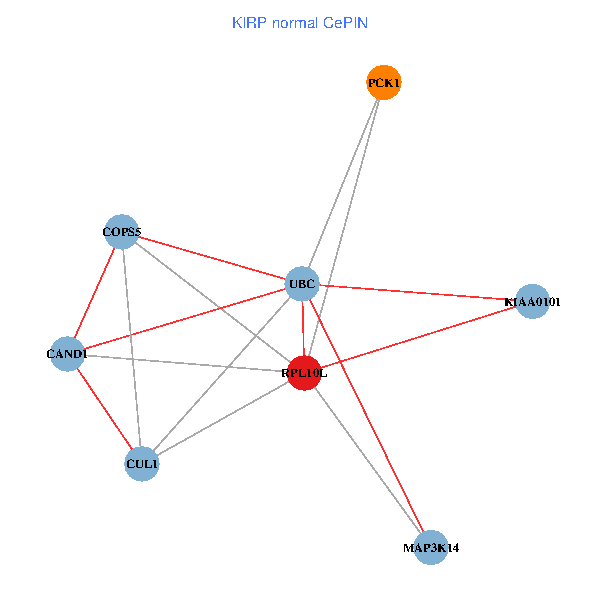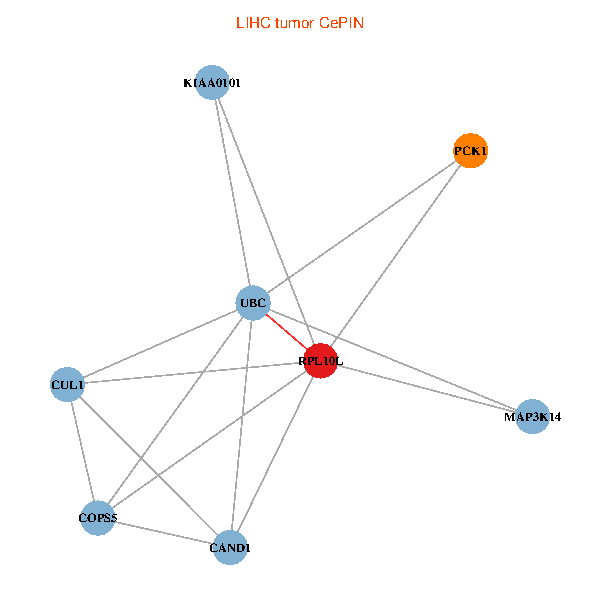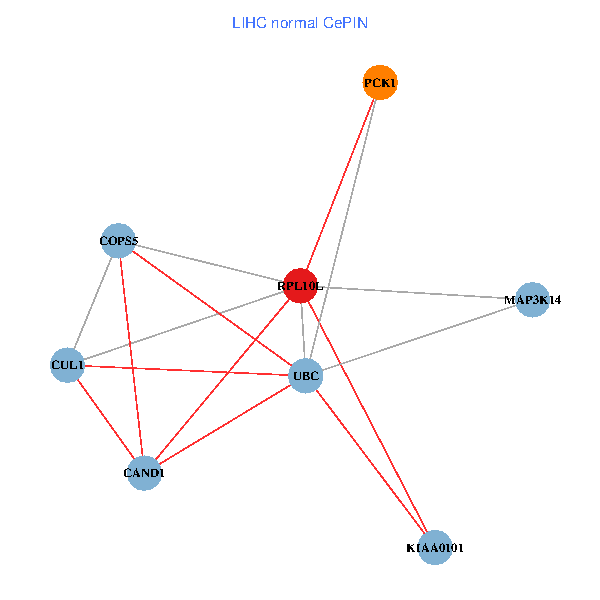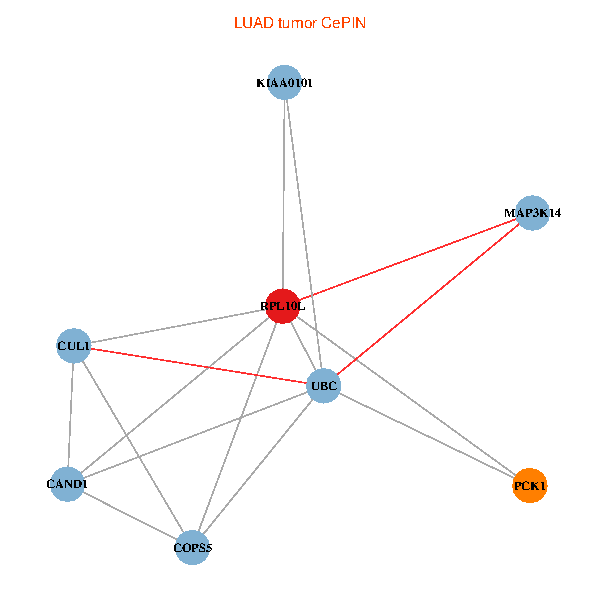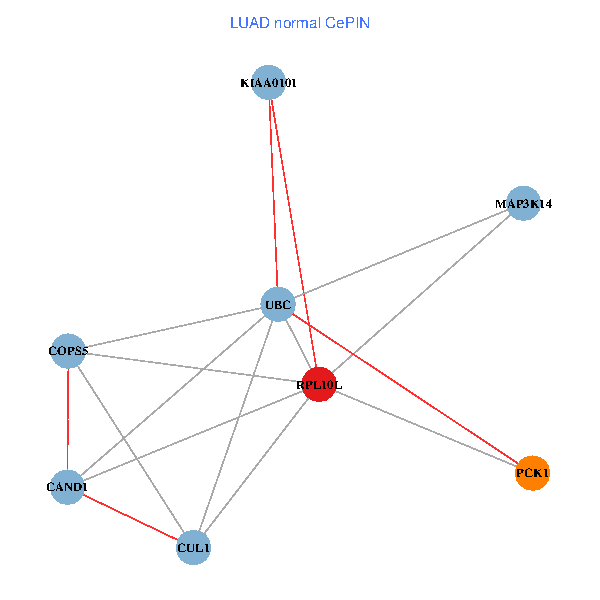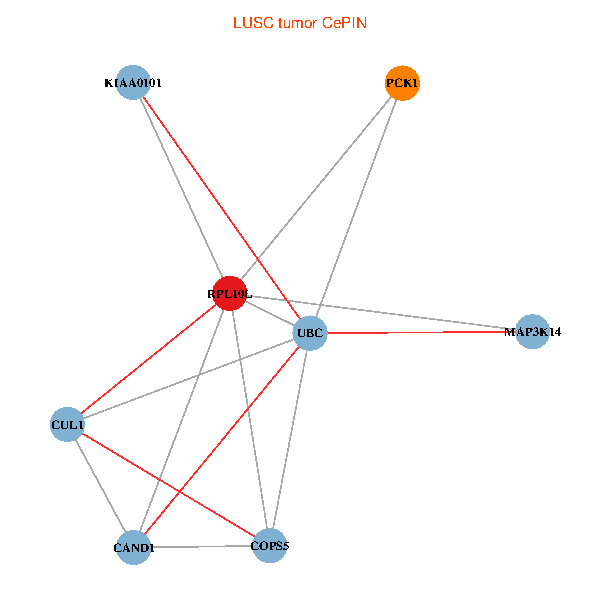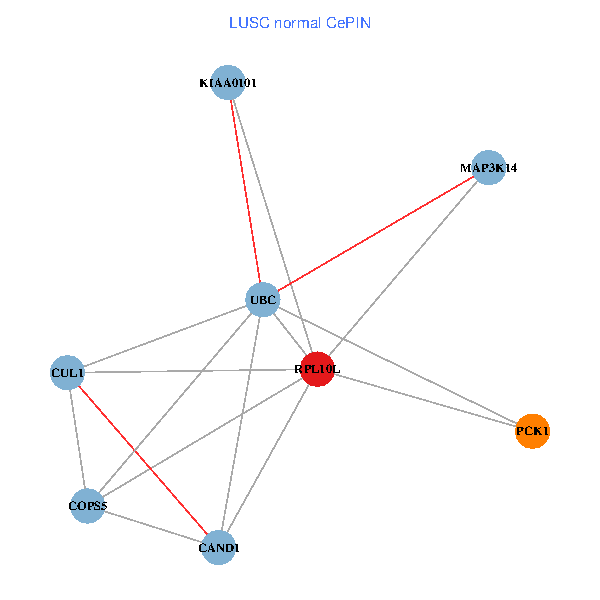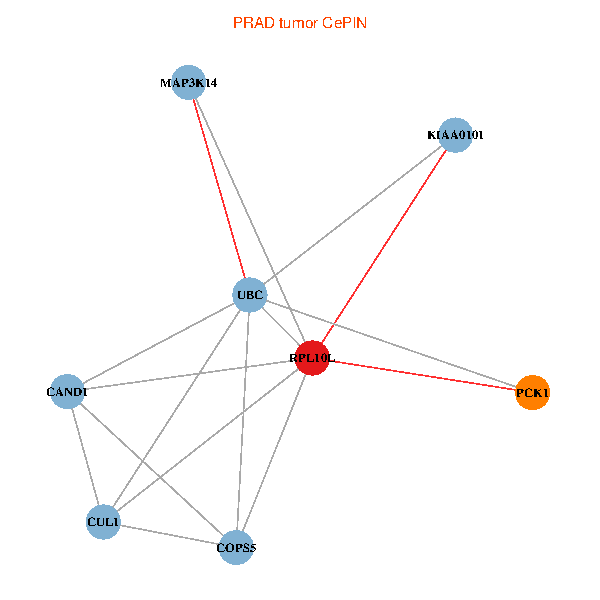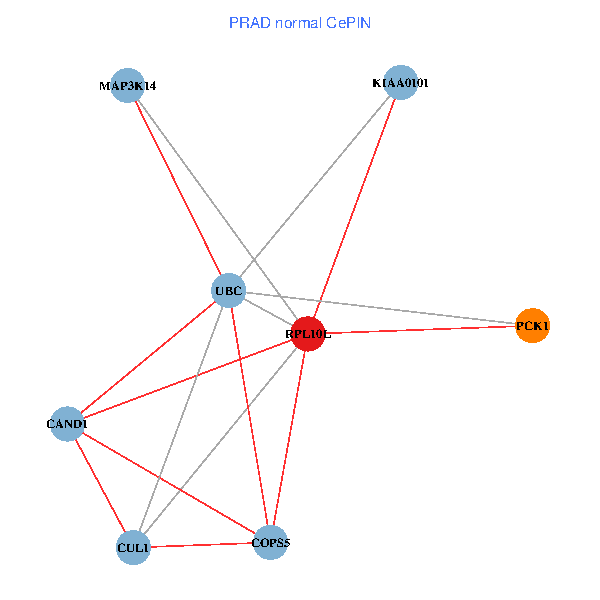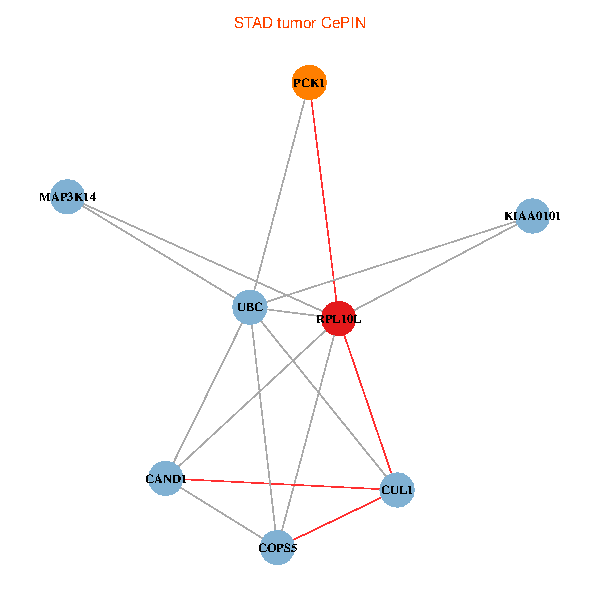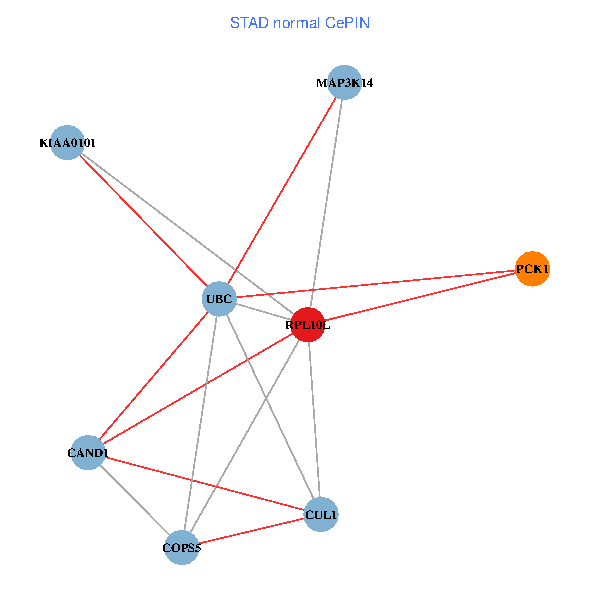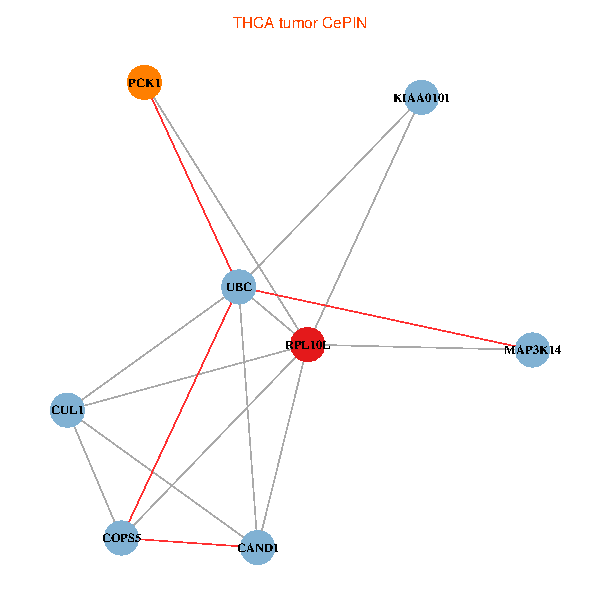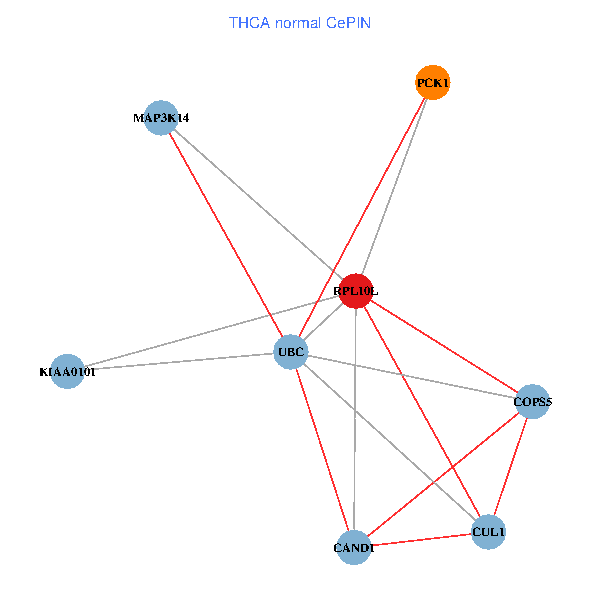 |
| |
| |
| |
| |
| |
| |
|
| TissGeneSummary for RPL10L |
 Gene summary Gene summary |
| Basic gene information | Gene symbol | RPL10L |
| Gene name | ribosomal protein L10-like | |
| Synonyms | RPL10_5_1358 | |
| Cytomap | UCSC genome browser: 14q21.2 | |
| Type of gene | protein-coding | |
| RefGenes | NM_080746.2, | |
| Description | 60S ribosomal protein L10-likeribosomal protein L10-like protein | |
| Modification date | 20141207 | |
| dbXrefs | HGNC : HGNC | |
| Ensembl : ENSG00000165496 | ||
| HPRD : 11753 | ||
| Vega : OTTHUMG00000157869 | ||
| Protein | UniProt: go to UniProt's Cross Reference DB Table | |
| Expression | CleanEX: HS_RPL10L | |
| BioGPS: 140801 | ||
| Pathway | NCI Pathway Interaction Database: RPL10L | |
| KEGG: RPL10L | ||
| REACTOME: RPL10L | ||
| Pathway Commons: RPL10L | ||
| Context | iHOP: RPL10L | |
| ligand binding site mutation search in PubMed: RPL10L | ||
| UCL Cancer Institute: RPL10L | ||
| Assigned class in TissGDB* | B | |
| Included tissue-specific gene expression resources | ||
| Specific-tissues in normal samples (assigned by TissGDB using HPA, TiGER, and GTEx) | Testis | |
| Cancer types related to the specific-tissues in cancer samples (assigned by TissGDB using TCGA) | TGCT | |
| Reference showing the relevant tissue of RPL10L | ||
| Description by TissGene annotations | TissgsKTS CNV lost TissGeneKTS | |
| * Class A consists of genes with literature evidence and is part of the cTissGenes. Class B consists of only cTissGenes without additional evidence. The remaining genes belong to Class C. |
 Gene ontology having evidence of Inferred from Direct Assay (IDA) from Entrez Gene ontology having evidence of Inferred from Direct Assay (IDA) from Entrez |
| GO ID | GO term | PubMed ID |
| Top |
| TissGeneExp for RPL10L |
 Gene expressions across 28 cancer types (X-axis: cancer type and Y-axis: log2(norm_counts+1)) Gene expressions across 28 cancer types (X-axis: cancer type and Y-axis: log2(norm_counts+1))(TCGA IlluminaHiSeq_RNASeqV2, pan-cancer normalized log2(norm_counts+1) data, version 2016-08-16) |
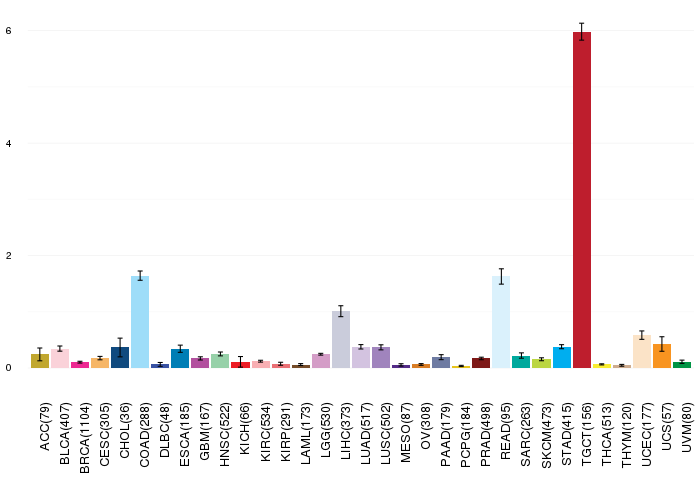 |
 Gene isoform expressions across 28 cancer types (X-axis: cancer type and Y-axis: log2(norm_counts+1)) Gene isoform expressions across 28 cancer types (X-axis: cancer type and Y-axis: log2(norm_counts+1))(TCGA pan-cancer tcga_rsem_isoform_tpm, version 2016-09-01) |
 |
 Gene expressions across normal tissues of GTEx data Gene expressions across normal tissues of GTEx data(GTEx GTEx_Analysis_v6_RNA-seq_RNA-SeQCv1.1.8_gene_rpkm.gct) - Here, we shows the matched tissue types only among our 28 cancer types. |
 |
 Different expressions across 14 cancer types with more than 10 samples between matched tumors and normals (X-axis: cancer type and Y-axis: log2(norm_counts+1)) Different expressions across 14 cancer types with more than 10 samples between matched tumors and normals (X-axis: cancer type and Y-axis: log2(norm_counts+1))(TCGA IlluminaHiSeq_RNASeqV2, pan-cancer normalized log2(norm_counts+1) data, version 2016-08-16) |
 |
| - Significantly differentially expressed cancer types and information. (|Fold change|>1 and FDR<0.05) |
| Cancer type | Mean(exp) in tumor | Mean(exp) in matched normal | Log2FC | P-val. | FDR |
| COAD | -0.811970571 | 1.880264044 | -2.692234615 | 5.85E-12 | 1.26E-10 |
| Top |
| TissGene-miRNA for RPL10L |
 Significantly anti-correlated miRNAs of TissGene across 28 cancer types Significantly anti-correlated miRNAs of TissGene across 28 cancer types(Gene-miRNA relations from TargetScanHuman Relsease 7.1, Conserved_Site_Context_Scores.txt.zip, 06.01.2016) (TCGA IlluminaHiSeq_miRNASeq, log2(RPM+1) data, version 2016-11-21) (TCGA IlluminaHiSeq_RNASeqV2, log2(normalized_count+1) data, version 2016-08-16) (Spearman’s Rank Correlation (p-value<0.05 and coefficient<-0.25)) |
| Cancer type | miRNA id | miRNA accession | P-val. | Coeff. | # samples |
| Top |
| TissGeneMut for RPL10L |
| TissGeneSNV for RPL10L |
 nsSNV counts per each loci. nsSNV counts per each loci.Different colors of circles represent different cancer types. Circle size denotes number of samples. (TCGA somatic mutation (SNPs and small INDELs) data, version 2016-04-25) * Click on the image to enlarge it in a new window. |
 |
 |
 Somatic nucleotide variants of TissGene across 28 cancer types Somatic nucleotide variants of TissGene across 28 cancer types (X-axis: cancer type and Y-axis: % of mutated samples) The numbers in parentheses are numbers of samples with mutation (nsSNVs). (TCGA somatic mutation (SNPs and small INDELs) data, version 2016-04-25) |
 |
| - nsSNVs sorted by frequency. |
| AAchange | Cancer type | # samples |
| p.E180K | STAD | 2 |
| p.E180K | SKCM | 2 |
| p.R162S | LUAD | 2 |
| p.R21C | SKCM | 2 |
| p.S20Y | UCEC | 1 |
| p.M115I | HNSC | 1 |
| p.R32C | UCEC | 1 |
| p.P18S | HNSC | 1 |
| p.N14K | STAD | 1 |
| p.R139S | THYM | 1 |
| p.E146D | UCEC | 1 |
| p.S79R | ESCA | 1 |
| p.S104Y | LUSC | 1 |
| p.G37S | STAD | 1 |
| p.R21C | UCEC | 1 |
| p.K74I | STAD | 1 |
| p.R4H | PRAD | 1 |
| p.Q59H | LUSC | 1 |
| p.K156R | STAD | 1 |
| p.G81C | LUSC | 1 |
| p.E145K | LUSC | 1 |
| p.E145K | SKCM | 1 |
| p.H203Y | SKCM | 1 |
| p.S137F | UCEC | 1 |
| p.G196A | LUAD | 1 |
| p.T125I | UCEC | 1 |
| p.G84V | LUAD | 1 |
| p.R4H | GBM | 1 |
| p.R162L | HNSC | 1 |
| p.R153H | HNSC | 1 |
| p.E145* | LUAD | 1 |
| p.K15R | ESCA | 1 |
| p.A67V | SKCM | 1 |
| p.L190P | LUAD | 1 |
| p.F94L | ESCA | 1 |
| p.G120R | SKCM | 1 |
| p.K187T | STAD | 1 |
| p.R38G | BRCA | 1 |
| p.R139H | COAD | 1 |
| p.Q143H | STAD | 1 |
| p.R116* | BLCA | 1 |
| p.M102V | HNSC | 1 |
| p.P93R | LUAD | 1 |
| p.N144K | LUAD | 1 |
| p.E182Q | BLCA | 1 |
| p.H95Y | SKCM | 1 |
| p.E56D | LUAD | 1 |
| p.G204D | THYM | 1 |
| p.R210Q | UCEC | 1 |
| p.P93L | SKCM | 1 |
| p.D44Y | PAAD | 1 |
| p.D193N | LUSC | 1 |
| p.P192S | SKCM | 1 |
| p.P122H | THYM | 1 |
| p.G50D | LIHC | 1 |
| p.F119L | PRAD | 1 |
| p.G124S | UCEC | 1 |
| p.R116P | ESCA | 1 |
| p.G2V | LUAD | 1 |
| p.R21H | STAD | 1 |
| p.A68T | OV | 1 |
| p.Q59H | STAD | 1 |
| p.R4S | LUSC | 1 |
| p.K187R | ESCA | 1 |
| p.R162C | LGG | 1 |
| p.R153H | PAAD | 1 |
| p.R90Q | SARC | 1 |
| p.K170T | STAD | 1 |
| p.R7C | SKCM | 1 |
| p.P47L | STAD | 1 |
| p.K198T | STAD | 1 |
| p.K30N | HNSC | 1 |
| p.H92N | LUAD | 1 |
| p.R90Q | STAD | 1 |
| p.T113A | LUAD | 1 |
| p.G50S | BRCA | 1 |
| p.T125A | STAD | 1 |
| p.D109H | LUSC | 1 |
| p.Y199* | LUAD | 1 |
| Top |
| TissGeneCNV for RPL10L |
 Copy number variations of TissGene across 28 cancer types (X-axis: cancer type and Y-axis: % of CNV samples) Copy number variations of TissGene across 28 cancer types (X-axis: cancer type and Y-axis: % of CNV samples)(TCGA Gistic2_CopyNumber_Gistic2_all_data_by_genes, Gistic2 copy number data, version 2016-08-16) |
 |
| Top |
| TissGeneFusions for RPL10L |
 Fusion genes including TissGene Fusion genes including TissGene (ChimerDB 3.0, 2016-12-01 and TCGA fusion Portal 2015-12-01) |
| Database | Src | Cancer type | Sample | Fusion gene | ORF | 5'-gene BP | 3'-gene BP |
| Top |
| TissGeneNet for RPL10L |
 Co-expressed gene networks based on protein-protein interaction data (CePIN) Co-expressed gene networks based on protein-protein interaction data (CePIN)(TCGA IlluminaHiSeq_RNASeqV2, pan-cancer normalized log2(norm_counts+1) data, version 2016-08-16) (PINA2 ppi data) |
| Top |
| TissGeneProg for RPL10L |
 Kaplan-Meier plots with logrank tests of overall survival (OS) using 28 cancer types Kaplan-Meier plots with logrank tests of overall survival (OS) using 28 cancer types (TCGA IlluminaHiSeq_RNASeqV2, pan-cancer normalized log2(norm_counts+1) data, version 2016-08-16) (TCGA clinicalMatrix, phenotype data, version 2016-04-27) * Click on the image to enlarge it in a new window. |
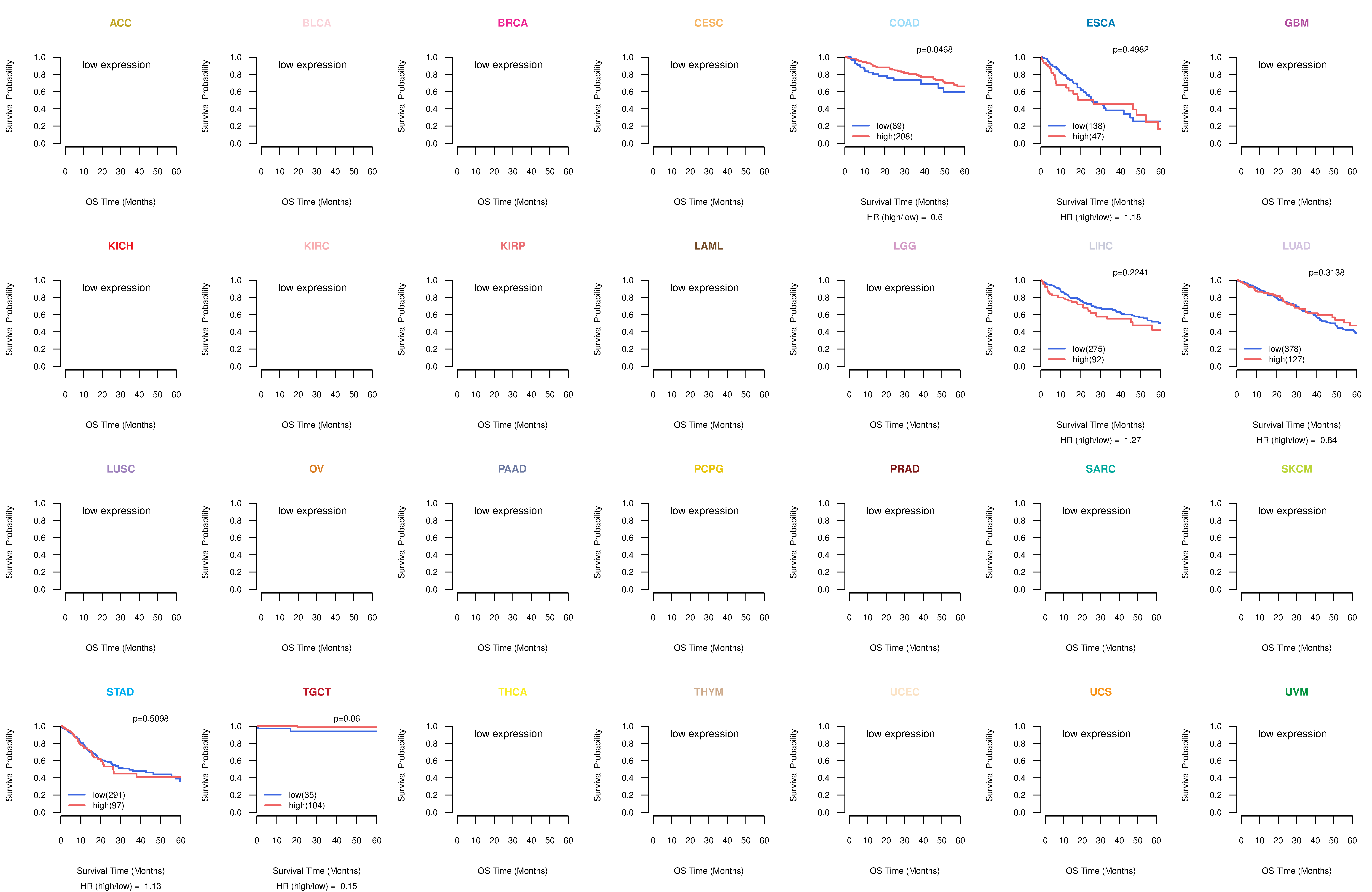 |
 Kaplan-Meier plots with logrank test of relapse free survival (RFS) using 28 cancer types Kaplan-Meier plots with logrank test of relapse free survival (RFS) using 28 cancer types (TCGA IlluminaHiSeq_RNASeqV2, pan-cancer normalized log2(norm_counts+1) data, version 2016-08-16) (TCGA clinicalMatrix, phenotype data, version 2016-04-27) * Click on the image enlarge it in a new window. |
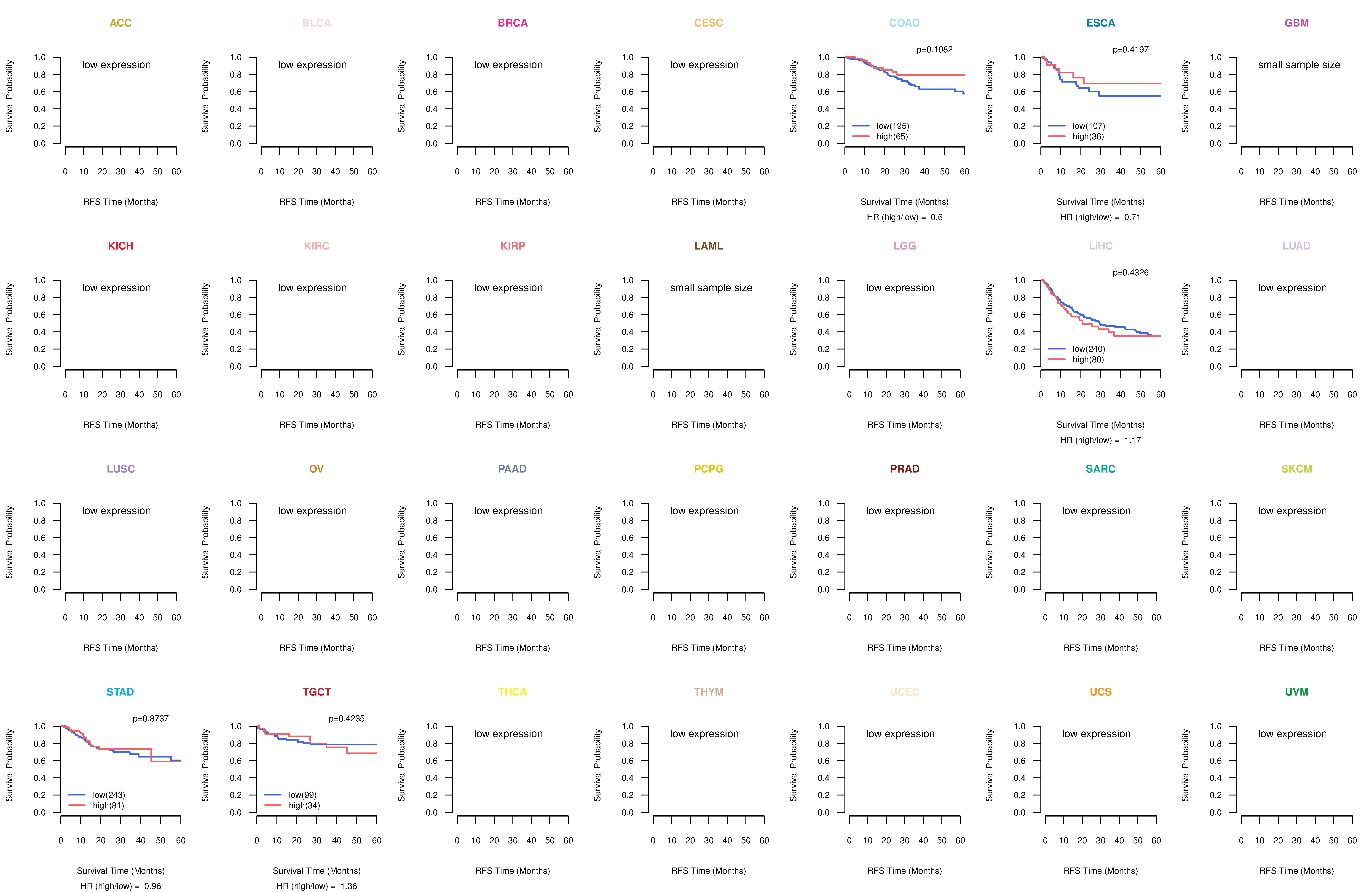 |
 Forest plot of Cox proportional hazard ratio (HR) and 95% CI of overall survival (OS) using 28 cancer types Forest plot of Cox proportional hazard ratio (HR) and 95% CI of overall survival (OS) using 28 cancer types (TCGA IlluminaHiSeq_RNASeqV2, pan-cancer normalized log2(norm_counts+1) data, version 2016-08-16) (TCGA clinicalMatrix, phenotype data, version 2016-04-27) * Click on the image enlarge it in a new window. |
 |
 Forest plot of Cox proportional hazard ratio (HR) and 95% CI of relapse free survival (RFS) using 28 cancer types Forest plot of Cox proportional hazard ratio (HR) and 95% CI of relapse free survival (RFS) using 28 cancer types (TCGA IlluminaHiSeq_RNASeqV2, pan-cancer normalized log2(norm_counts+1) data, version 2016-08-16) (TCGA clinicalMatrix, phenotype data, version 2016-04-27) * Click on the image enlarge it in a new window. |
 |
| Top |
| TissGeneClin for RPL10L |
| TissGeneDrug for RPL10L |
 Drug information targeting TissGene Drug information targeting TissGene (DrugBank Version 5.0.6, 2017-04-01) |
| DrugBank ID | Drug name | Drug activity | Drug type | Drug status |
| Top |
| TissGeneDisease for RPL10L |
 Disease information associated with TissGene Disease information associated with TissGene (DisGeNet, 2016-06-01) |
| Disease ID | Disease name | # pubmeds | Source |
| umls:C0029925 | Ovarian Carcinoma | 1 | BeFree |
| umls:C1140680 | Malignant neoplasm of ovary | 1 | BeFree |

